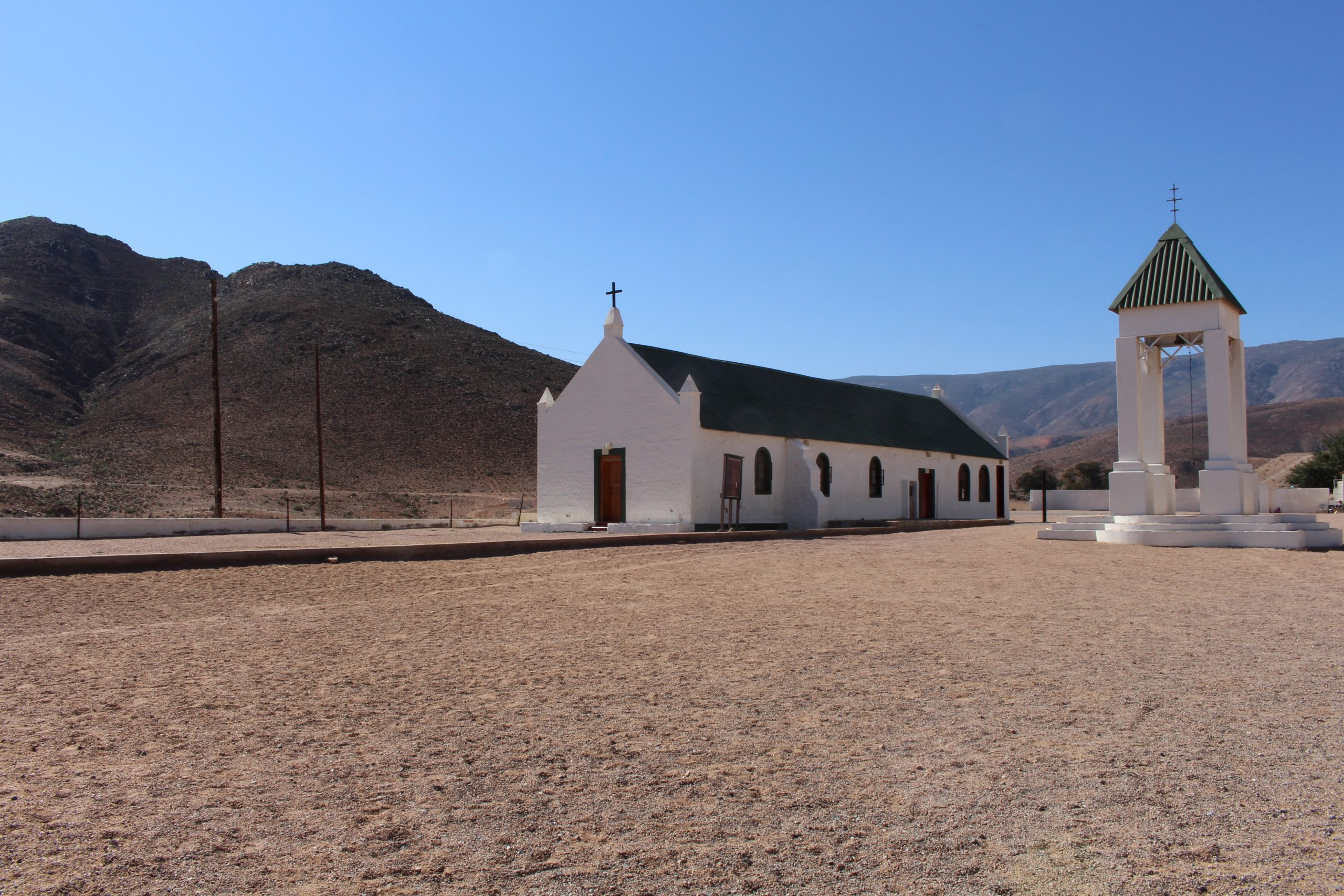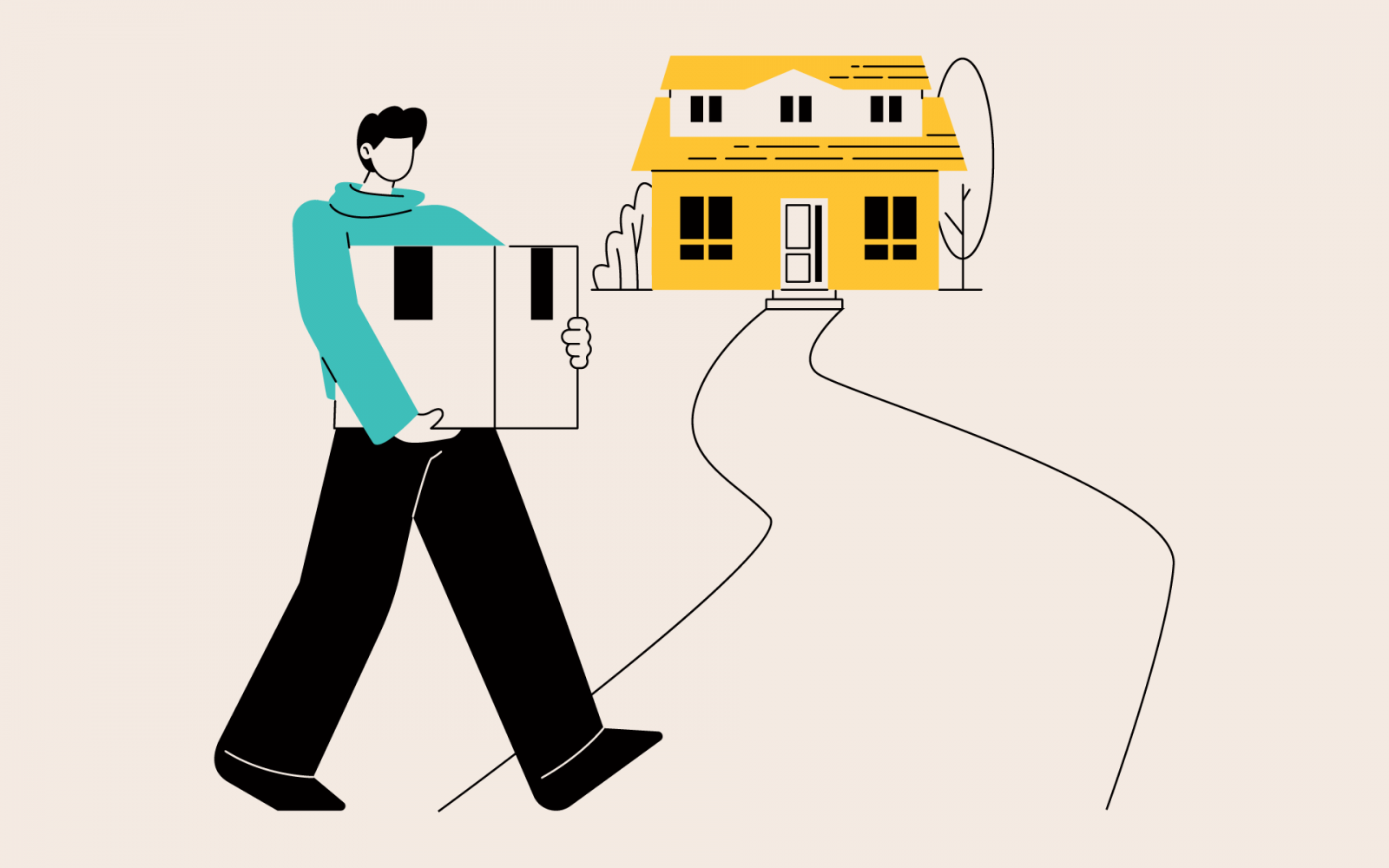Chalwyn Thomas, oracle of the Richtersveld

In the lonely semidesert, a Weskusbewoner sets out to save the planet.
In the lonely semidesert, a Weskusbewoner sets out to save the planet
In the eternal loneliness of the Richtersveld, with its sands of burnt sienna, its fields of white stone, and its bursts of bright bloom greeting the sun, Chalwyn Thomas has found his place of peace and belonging.
The land, on the north-west shoulder of the Northern Cape, bordering Namibia, is harsh and unforgiving, but Chalwyn has learned the secrets of its soul, and they stir him to poetry.
“En die wat saam met my bly, het vrede gemaak en my liefgekry,” he recites, his Nama-accent as languid and rolling as the semidesert landscape. “Dis ek, Richtersveld is my naam.”
Poet, storyteller, oracle of the veld — or ‘veldkenner’, to use his own term – Chalwyn lives with his wife and two children in the tiny settlement of Kuboes, dominated by a whitewashed mission church that is the heart of community life.
He works as a teacher at a laerskool nearby, and sunlights as a tour guide for visitors seeking a wilderness experience of a different kind.
As that last line of his poem suggests, when Chalwyn speaks of the Richtersveld, he speaks as if he were the Richtersveld itself.
The air that he breathes, the dunes that he walks, the plants that he stops to smell, are all a part of his being; they enrich and sustain him, and he feels, in turn, that he needs to give something back to the land.
Once, he says, the Richtersveld was like Canaan, the biblical land of milk and honey, where the Nama people, whose name lives on in Namaqualand, lived a nomadic lifestyle and lived well.
“They managed to get everything they needed, because they had enough cattle,” says Chalwyn. “And if you have cattle, then you basically have everything. My ancestors lived in harmony with nature, like ebony and ivory, on the land God gifted to them.” What changed, then?
In 1925, as Chalwyn tells the story, a little boy, a Nama-child, discovered a ‘blink klip’ – a shiny stone – on a farm near the windswept West Coast. He showed it to a white man, a prospector. In the diamond-rush that followed, the nomads lost their land and their cattle, and the Richtersveld lost its soul.
“It caused a lot of pain in our environment,” says Chalwyn. “Even today, the stories you’ll hear from the Nama people are stories of heartache.”
It was only in 1991, long after the fortune-seekers, the colonists, the ‘hakkiesdraad’ – the barbed-wire fences that came to symbolise apartheid and dispossession – that the Richtersveld was proclaimed a national park, following a land claim agreement with the Nama people. But the old stories remain.
Chalwyn is writing a book about those times –“I want to give our side of the story” – and the memories of bygone generations swim through his veins like blood.
From his elders, he learned about the healing powers of the desert plants, like the Agathosma betulina, the boegoe shrub, with its white-pink flowers and pungent, minty aroma.
“If you’ve got a fever, you cook the bush in a little water, and after an hour or so, you pour it through a sieve and you drink it. It works like a bomb.”
And then there was the story that every Nama-child came to know: the story of the ‘Big Snake’.
It was said that if you wandered too far in the wilderness, you would come across a beautiful woman or ‘a plaything’, and if you approached the woman or took hold of ‘the plaything’, there would suddenly be a big, terrifying snake in front of you.
It was only many years later that Chalwyn came to realise that the story was a cautionary tale, designed to keep children from straying too close to the banks of the big, snaking Orange River that feeds the thirst-land and erupts into flood after the rains.
These days, Chalwyn has a story of his own to tell, and it is more fearsome than any legend of a shape-shifting serpent. It concerns the earth, and the elements of fire, wind, and water that hold the power to destroy it.
On Heritage Day last year, Chalwyn hopped onto a mountain bike and pedalled all the way from Port Nolloth to Alexander Bay, a distance of more than 80 km. He then stopped at Beauvallon, Sandrift, Kuboes, Lekkersing, and Eksteenfontein along the way.
He called it the ‘Richtersveld climate change awareness campaign’, but it was as much a calling as a campaign.
When an onlooker told Chalwyn he was crazy to ride so far in the heat of the day, he answered: “I’m doing this thing because nature conversation lies close to my heart, and God has chosen me out of everybody to spread awareness.”
To the outsider, the casual visitor, the big-city-dweller, the Richtersveld may seem to be a place where over millennia nothing has changed. The desert drifts, the river runs, the mountains brood, the sun blazes in the diamond-blue sky.
But Chalwyn has lived here long enough to know that the land is fragile, that the weather is changing, and that people are harming the planet without even thinking about it.
“I want to tell the people of the Richtersveld that they must switch off their lights during the day, and they mustn’t have the TV and radio on at the same time, and they must unplug their cellphone charger when the cellphone is charged. The little things we do can make a difference.”
He cares for this place, and he never feels alone when he wanders through it. Because nature wanders with him, and this is where he feels at home. “Dis ek, Richtersveld is my naam.”
*For more fascinating stories about the remarkable people and places of the West Coast, tune in to Weskusbewoners, brought to you by BrightRock, on kykNET every Thursday at 21:00.




